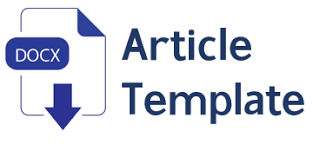Empowering Communities through Innovative Programs: A Review of Village Tourism Program and Integrated Waste Management
Keywords:
Community Empowerment, PAK DALANG, SARAH, Socio-Economic Growth, Waste ManagementAbstract
This research presents successful community empowerment programs focusing on sustainable tourism development and waste management in Prabumulih, Indonesia. The Desa Wisata Burai Program, initiated in 2016 by Pertamina EP (PEP) Prabumulih, aimed to enhance the tourist experience by providing recreational facilities, such as saung, galleries, and kiosks, while supporting local artisans. Alongside this, the SARAH (Sampah Jadi Berkah) Program, started in 2020, focused on integrated waste management, transforming waste materials into compost and innovative upcycled products. Collaborations with local institutions resulted in the creation of herbal soaps and probiotic beverages. Both initiatives demonstrated positive social, economic, and environmental outcomes, including increased income generation, environmental preservation, and strengthened community bonds. The programs' successes underscore the importance of community-based approaches in sustainable development, providing replicable models for similar regions. The Desa Wisata Burai and SARAH Programs exemplify how targeted interventions can foster community empowerment, environmental conservation, and socio-economic growth, highlighting the significance of collaboration between various stakeholders to achieve long-term sustainable development goals.
Published
Issue
Section
Copyright (c) 2023 Almira Chairunissa Wahyu Tomo, Hengky Rosadi, Erwin Hendra Putra, M. Saddam Hussein, Wahyu Supartono, Anggoro Cahyo Sukartiko, Muhammad Jimly Imamuddin

This work is licensed under a Creative Commons Attribution-ShareAlike 4.0 International License.
Authors who publish with this journal agree to the following terms:
- Authors retain copyright and grant the journal right of first publication with the work simultaneously licensed under a Creative Commons Attribution-ShareAlike 4.0 International. that allows others to share the work with an acknowledgment of the work's authorship and initial publication in this journal.
- Authors are able to enter into separate, additional contractual arrangements for the non-exclusive distribution of the journal's published version of the work (e.g., post it to an institutional repository or publish it in a book), with an acknowledgment of its initial publication in this journal.
- Authors are permitted and encouraged to post their work online (e.g., in institutional repositories or on their website) prior to and during the submission process, as it can lead to productive exchanges, as well as earlier and greater citation of published work.




